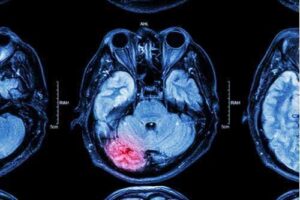Diagnosis is a crucial element in personal injury claims, serving as the cornerstone for establishing the extent and nature of injuries sustained by a claimant. In the context of injury claims, diagnosis refers to the formal determination made by a medical professional regarding the nature, severity, and causation of injuries suffered by an individual as a result of an accident or incident.
The Significance of Diagnosis in Injury Claims
Diagnosis plays a pivotal role in injury claims for several key reasons:
- Establishing Causation: Diagnosis helps establish a causal link between the accident or incident and the injuries sustained. It demonstrates that the injuries were a direct result of the incident in question, which is essential for holding the responsible party liable.
- Determining Severity: A proper diagnosis provides a clear understanding of the severity of the injuries. This information is crucial for calculating damages, including medical expenses, pain and suffering, and lost wages.
- Treatment Planning: Diagnosis guides medical treatment. It helps medical professionals create a treatment plan tailored to the specific injuries, ensuring that the claimant receives appropriate care and therapy.
- Expert Testimony: In legal proceedings, medical professionals often serve as expert witnesses. Their diagnoses and opinions carry significant weight in court, helping to validate the claimant’s injuries and their impact on their life.
The Diagnosis Process in Injury Claims
The diagnosis process in injury claims typically involves the following steps:
- Medical Evaluation: After an accident, the injured party seeks immediate medical attention. A healthcare provider conducts a thorough examination to assess the extent of injuries. This examination includes physical assessments, medical history reviews, imaging tests (e.g., X-rays, MRI scans), and laboratory tests (e.g., blood tests).
- Provisional Diagnosis: Based on the initial evaluation, the healthcare provider may provide a provisional diagnosis. This is a preliminary assessment of the injuries and their potential implications. However, a definitive diagnosis may require further tests or evaluation over time.
- Specialist Consultation: Depending on the complexity of the injuries, the injured party may be referred to a specialist. Specialists, such as orthopedic surgeons, neurologists, or radiologists, can provide expert opinions and conduct additional tests to confirm or refine the diagnosis.
- Diagnostic Testing: Specialized diagnostic tests, such as CT scans, MRIs, or electromyography (EMG), may be ordered to obtain more detailed information about the injuries. These tests help to uncover hidden or underlying injuries that may not be immediately apparent.
- Treatment Plan: Once a comprehensive diagnosis is established, a treatment plan is formulated. This plan outlines the medical interventions required to address the injuries, such as surgery, physical therapy, medications, or rehabilitation.
Legal Implications of Diagnosis in Injury Claims
In a legal context, the diagnosis has several critical implications:
- Evidence in Court: The formal diagnosis and medical records serve as crucial evidence in personal injury cases. They demonstrate the injuries, their severity, and the treatment received. These records can be presented in court to support the claimant’s case.
- Damages Calculation: Diagnosis informs the calculation of damages in an injury claim. Medical expenses, both past and future, are a significant component of the damages sought. A precise diagnosis helps determine the costs associated with treating the injuries.
- Expert Testimony: Medical professionals may be called upon to provide expert testimony in court. They can explain the diagnosis, the prognosis, and the impact of the injuries on the claimant’s life. Their testimony can influence the outcome of the case.
- Settlement Negotiations: A formal diagnosis can strengthen the claimant’s position during settlement negotiations. It provides concrete evidence of the injuries and their impact, making it more challenging for the opposing party to dispute liability or downplay the extent of damages.
Conclusion
In personal injury claims, diagnosis is a fundamental and multifaceted aspect. It serves as the foundation for establishing causation, determining the severity of injuries, planning treatment, and presenting compelling evidence in legal proceedings. A thorough and accurate diagnosis not only facilitates proper medical care but also plays a pivotal role in securing just compensation for injured parties seeking recourse through the legal system. Understanding the significance of diagnosis is essential for claimants and legal professionals alike when navigating the complexities of injury claims.
If you need a Personal Injury, or Auto Accident Lawyer Contact Us Today. For more legal terms on Personal Injury, or Auto Accident visit here.




